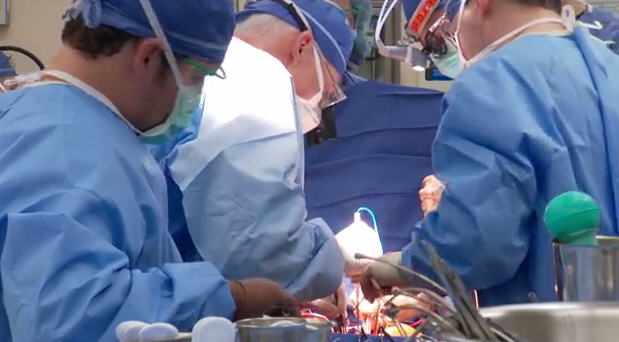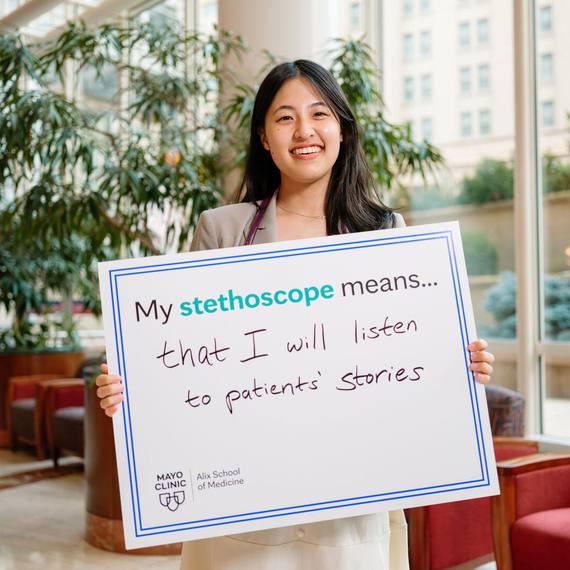-
 Arizona
ArizonaMayo Clinic Transplant Programs Rank Among Best in U.S. for Survival Rates

PHOENIX — Mayo Clinic, as a three-site organization, remains the largest provider of solid organ transplants in the U.S. and continues to be identified as having patient and graft survival outcomes that rank among the best in the nation.
According to the Scientific Registry of Transplant Recipients (SRTR), a national database of transplant statistics, Mayo Clinic’s transplant programs in Arizona, Florida and Rochester, Minn., score statistically better than expected in terms of patient and graft survivals at the reported time points of one month, one year and three years. Graft survival means that the transplanted organ is still functioning.
The lung transplant program at Mayo Clinic’s Florida campus was one of two lung transplant programs in the U.S. with statistically better-than-expected outcomes for one-year patient and graft survival. Florida’s liver transplant program, with three-year patient and graft survival rates that also are statistically better than expected, is one of only four programs meeting this criteria at that time point.
MEDIA CONTACT: Lynn Closway, Mayo Clinic Public Affairs, newsbureau@mayo.edu / 507-284-5005.
https://www.youtube.com/watch?v=oXTFFR1242A
On Mayo Clinic’s Rochester campus, the liver transplant one-month patient and graft survivals are better than expected. Rochester’s liver transplant program is the only program in the country to achieve that distinction for the one-month time period. Their one-year kidney graft survivals also are statistically better than expected, with only five kidney programs meeting these criteria at the one-year mark.
For the second consecutive SRTR reporting period, Mayo Clinic’s Arizona campus has the best one-year patient and graft survival results for liver transplantation in the U.S., and is one of only three liver transplant programs with one-year patient and graft survivals that are statistically better than expected. The program’s kidney transplant program is one of only two programs in the U.S. with one-year kidney patient and graft transplant survival rates that are statistically better than expected.
The SRTR reports results at all transplant centers in the U.S., and compares individual programs and how they rank against each other. The current statistics, which are made public twice per year, include patients transplanted from Jan. 1, 2012, through June 30, 2014, for the one-month and one-year reports. The three-year report includes patients receiving transplants between Jan. 1, 2010, and June 30, 2012.
Being ranked "statistically better than expected" is considered to be significant for transplant programs, according to David Douglas, M.D., director of the Transplant Program on Mayo Clinic’s Arizona campus.
Douglas adds that only a very small number of transplant centers – generally only 1 percent to 5 percent of programs – earn that ranking, “and Mayo across all campuses has more programs at that level of excellence than any other transplant provider in the country,” he says.
"Our quality and outcomes in our solid organ transplant programs are representative of all the programs, including kidney, heart, liver, lung and pancreas — across the three campuses of Mayo Clinic," Dr. Douglas says. "We can credit our successes to the teamwork that is a hallmark of our programs and the fact we can leverage each other's best practices and learn from each other.”
Mayo Clinic as a three-site organization performed 1,132 solid organ transplants in 2014.
About the SRTR
The SRTR is a solid organ transplant to help their evaluation. The SRTR is a national database covering statistics about solid organ transplantation, including kidney, heart, lung and pancreas, and graft outcomes. The database is available to the public and provides useful data for patients requiring of transplant programs in the U.S. http://www.srtr.org/.
###
About Mayo Clinic
Mayo Clinic is a nonprofit organization committed to medical research and education, and providing expert, whole-person care to everyone who needs healing. For more information, visit http://mayocl.in/1ohJTMS or https://newsnetwork.mayoclinic.org/







